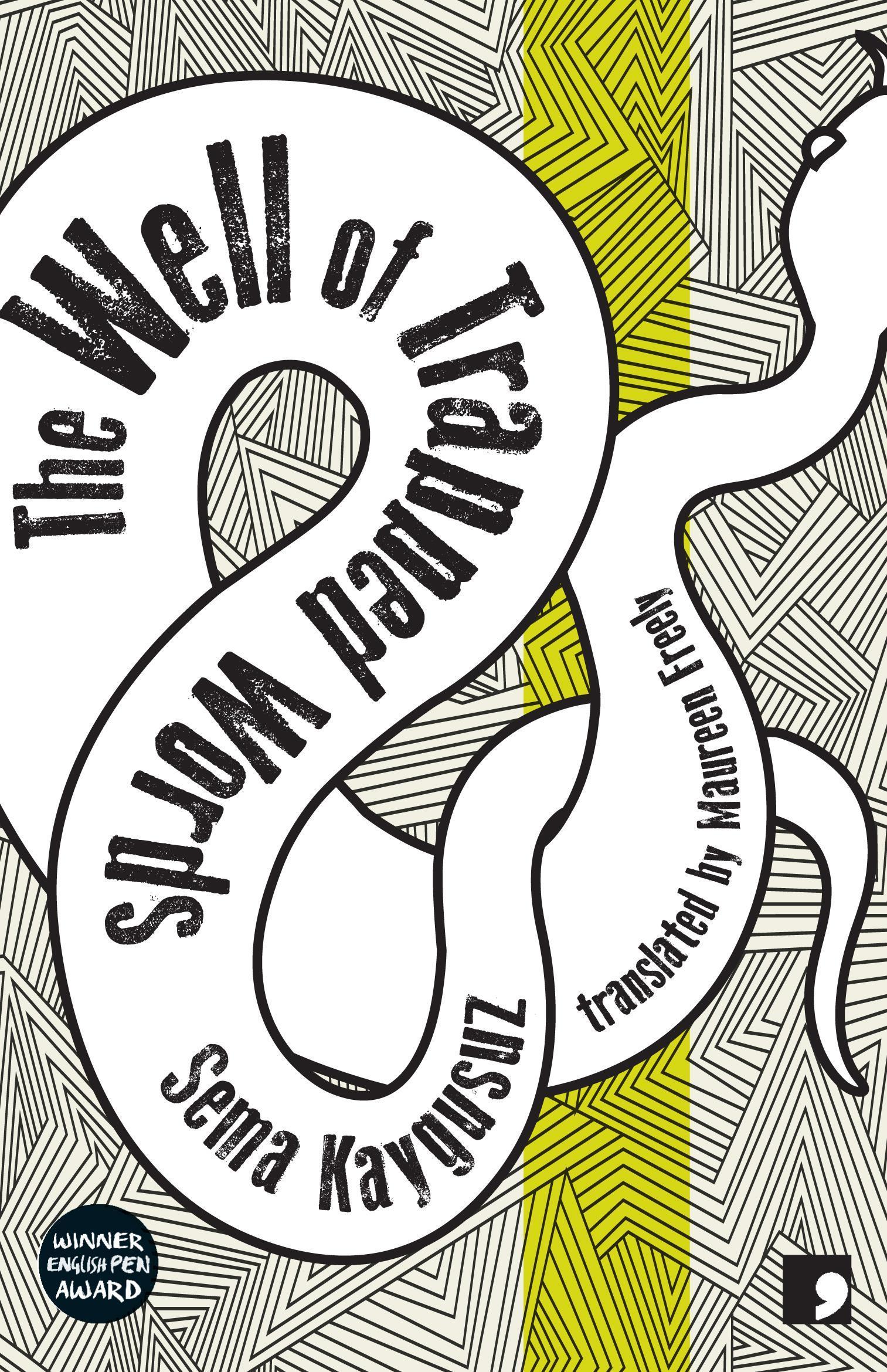‘The Well of Trapped Words’ by Sema Kaygusuz
William Armstrong - william.armstrong@hdn.com.tr
 ‘The Well of Trapped Words’ by Sema Kaygusuz, translated by Maureen Freely (Comma Press, 151 pages, £10)
‘The Well of Trapped Words’ by Sema Kaygusuz, translated by Maureen Freely (Comma Press, 151 pages, £10)Sema Kaygusuz is the author of four novels and four short story collections published in Turkey. This new volume of her work is the first to appear in English, crisply translated by Maureen Freely and supported by PEN International.

“The Well of Trapped Words” is a slim book of 19 short tales, and its concerns are fairly typical of a particular stripe of Turkey’s left: Feminism, environmental degradation, the tyranny of repressive gender roles, confronting unspoken historical trauma, etc. While feminism sustains much of the work, Kaygusuz also shows flexibility, inhabiting an impressively broad range of characters - from oppressed women to dying old men marrying child brides, from a mother with a mysterious affection for a lethal viper to a street brawler being treated in hospital. Over the course of just 150 pages we get a kind of miniature kaleidoscope of Turkish society. Most of the stories are elusive snapshots that bear rereading, with enough room for the reader to breathe without being spoon-fed.
There’s a hint of magical realism in many of them, with uncanny, unnatural, and often macabre events taking place in otherwise ordinary lives and narratives. Kaygusuz generally avoids expressing her feminism through megaphoned sloganeering, but rather uses creative conceits and sleight of hand. Occasionally you wonder whether some of the stories really should be so evasive and whether there is actually much of substance lurking beneath the surface, but few are longer than 10 pages so it is fair to say that none outstay their welcome.
The translation is tight and is helped by the fact that Kaygusuz mostly avoids clichés and unimaginative metaphors. Still, she occasionally drops the ball and succumbs to unsubtlety. One tale proclaims the author’s anti-militarism by describing the rape of a young officer on national service by a colonel. Another one mostly takes the form of a letter written by a local village headman in an eastern province, complaining to the prime minister about a new hydroelectric dam sinking his village. Readers should not appreciate being bludgeoned with such explicit “messages.” It is also fair to say that humor is not Kaygusuz’s strong point. While the material is quite diverse, the tone remains pretty uniform throughout: Very portentous and unencumbered by any jokes.
In interviews and public utterances, Kaygusuz has expressed her annoyance with the restrictions of being labeled a “Turkish novelist,” saying it limits the issues that people want her to talk and write about. Happily, while readers will doubtless look to her work for a “window into Turkish society,” as proclaimed by the publisher, they don’t hammer that “Turkishness” into the reader’s head. Ultimately, while these stories don’t really move any mountains, they are certainly worth reading.
 ‘The Well of Trapped Words’ by Sema Kaygusuz, translated by Maureen Freely (Comma Press, 151 pages, £10)
‘The Well of Trapped Words’ by Sema Kaygusuz, translated by Maureen Freely (Comma Press, 151 pages, £10) “The Well of Trapped Words” is a slim book of 19 short tales, and its concerns are fairly typical of a particular stripe of Turkey’s left: Feminism, environmental degradation, the tyranny of repressive gender roles, confronting unspoken historical trauma, etc. While feminism sustains much of the work, Kaygusuz also shows flexibility, inhabiting an impressively broad range of characters - from oppressed women to dying old men marrying child brides, from a mother with a mysterious affection for a lethal viper to a street brawler being treated in hospital. Over the course of just 150 pages we get a kind of miniature kaleidoscope of Turkish society. Most of the stories are elusive snapshots that bear rereading, with enough room for the reader to breathe without being spoon-fed.
“The Well of Trapped Words” is a slim book of 19 short tales, and its concerns are fairly typical of a particular stripe of Turkey’s left: Feminism, environmental degradation, the tyranny of repressive gender roles, confronting unspoken historical trauma, etc. While feminism sustains much of the work, Kaygusuz also shows flexibility, inhabiting an impressively broad range of characters - from oppressed women to dying old men marrying child brides, from a mother with a mysterious affection for a lethal viper to a street brawler being treated in hospital. Over the course of just 150 pages we get a kind of miniature kaleidoscope of Turkish society. Most of the stories are elusive snapshots that bear rereading, with enough room for the reader to breathe without being spoon-fed.